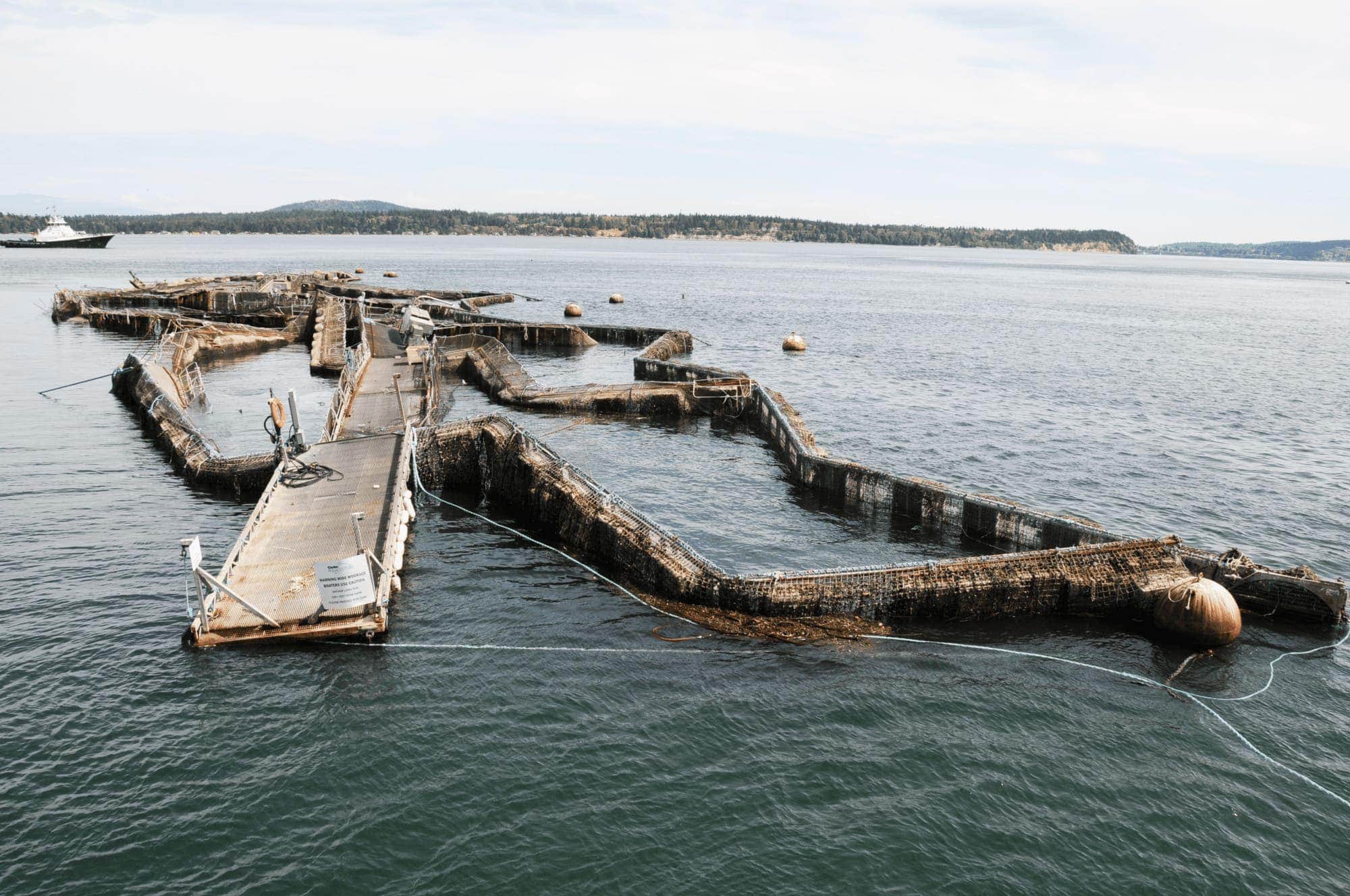
WFC bids to lease sites for conservation and public access
The fifteen-year leases that have authorized the commercial net pen aquaculture industry to pollute and profit in Washington’s public waters are expiring, requiring the industry to reapply. Today, Wild Fish Conservancy (WFC) submitted formal applications to the Department of Natural Resources (DNR) to lease these same Puget Sound state-owned aquatic land sites used and leased for commercial open water net pen aquaculture.
After the catastrophic collapse of Cooke Aquaculture’s Cypress Island open water net pen in 2017, the public came together to pass Washington’s landmark law banning nonnative Atlantic salmon net pen aquaculture in Puget Sound after the expiration of Cooke’s existing leases. Taking advantage of a loophole in the law, the company submitted a new proposal in fall 2019 to transition their facilities to native species in order to avoid the phase out of their Puget Sound net pens and to qualify for new leases for all sites.
The continued use of public waters for commercial net pen aquaculture directly undermines the will of the public who have fought tirelessly to protect Puget Sound from this industry and invested significantly in the recovery of wild salmon, steelhead, orcas, and the health of Puget Sound.” says Kurt Beardslee, executive director of the Wild Fish Conservancy. “The expiration of these leases comes less than once in a decade and offers the public a rare opportunity to work together to take back our sound and restore these waters after thirty years of rampant pollution and industrial use.”
In accordance with existing public-use regulations and in concert with obligations to fulfill tribal treaty rights, the campaign’s alternative, the Taking Back Our Sound Restoration Project, seeks to hold these lands in trust for the sole purposes of restoring these industrialized aquatic lands to their natural state for the restoration and conservation of threatened and endangered species, water quality, and the overall health and function of Puget Sound’s ecosystem; and restoring full access to 130 acres of aquatic lands to the public for their benefit, use and enjoyment.
Washington’s laws direct DNR to protect state-owned aquatic lands as a public trust and to strive for uses that ensure environmental protection, encourage direct use, and provide a balance of benefits for all citizens. As Cooke reapplies for each of its expiring or recently terminated leases, DNR will need to compare both applications and proposed uses against the state’s goals and philosophy for managing public lands, creating an unusual competition and leaving DNR with a precedent-setting choice to make—continue to lease these waters for the restoration of Puget Sound and use by all, or the degradation of public waters and profit of a few.
“To date, Commissioner Franz has shown exceptional leadership when it comes to holding Cooke Aquaculture accountable for our environmental laws and protecting Puget Sound from this industry” said Beardslee. “By choosing the Taking Back Our Sound proposal, Commissioner Franz will guarantee the public that these lands, currently degraded and restricted for private profit, will be restored and managed for the public’s benefit and use by all citizens.”
Throughout the coming months, the newly launched Taking Back Our Sound campaign will offer the public opportunities to make their voices heard on this important issue and to call on Commissioner of Public Lands Hilary Franz and DNR to make the Sound choice for Puget Sound and current and future generations.
Taking Back Our Sound is a new Our Sound, Our Salmon campaign to engage the public in a social movement to take back our waters from the commercial open water net pen industry to protect Puget Sound and restore the ecosystem for the use and benefit of all. Our Sound, Our Salmon is facilitated by Wild Fish Conservancy.
Wild Fish Conservancy is a nonprofit conservation ecology organization dedicated to preserving, protecting, and restoring the northwest’s wild fish and the ecosystems they depend on, through science, education, and advocacy.
###
For More Information visit: oursound-oursalmon.org/taking-back-our-sound
Join our mailing list to recieve important updates on our work, the latest wild fish news, & opportunities to take action to support wild fish.
This site is protected by reCAPTCHA and the Google Privacy Policy and Terms of Service apply.
Wild Fish Conservancy is recognized as a 501(c)3 non-profit by the IRS